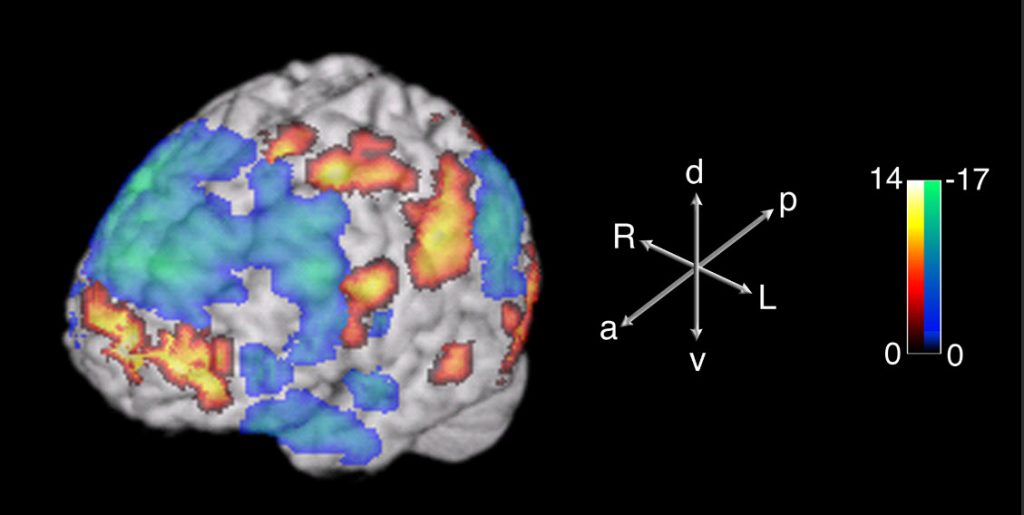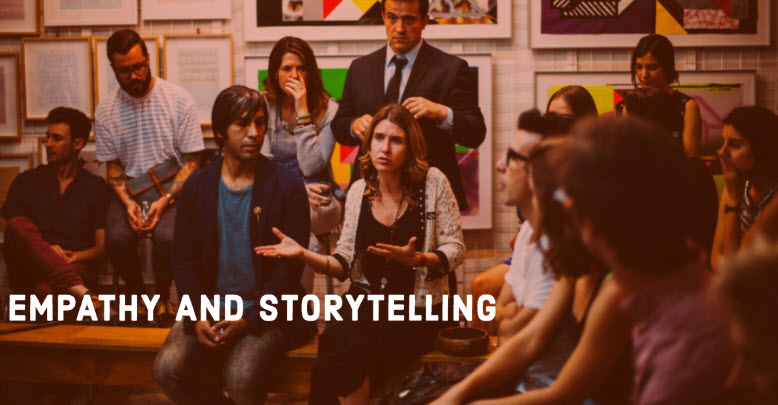Clay Drinko says Play Your Way Sane: How Improvisation Changes the Brain
Clay Drinko gets it! After stumbling into Improv over 20 years ago, he has made a career as an educator, an improviser and author. He has very insightful and interesting things to say – you should get to know him! Read here how to ‘Play You Way Sane“.
Neural Substrates of Spontaneous Musical Performance: An fMRI Study of Jazz Improvisation – A Study by Charles Limb and Allen Braun
Charles Limb and Allen Braun used fMRI (Functional MRI) to study the parts of the brains activated during spontaneous musical performance or improvisation. This study showed that there is a ” distributed neural pattern may provide a cognitive context that enables the emergence of spontaneous creative activity.” We find this very interesting as it applies also to improvisation in endeavors other than musical improvisation, such as comedic improvisation and the day-to-day…
This is your brain on improv – a Podcast by Patrick Cox from the World in Words series
We were blown away by this podcast. Listen to the Worlds in Words’ explore how an improvising brain behaves differently than a non-improvising brain. You can also subscribe to the World in Words podcast series here. But right now listen to “This is your brain on improv” .
Characters Building Character
Comedic Improvisers are known for their ability to create absurd and wacky characters, often including funny voices or strange physicalities. These performances are entertaining, as the characters might remind us of people we know, or are simply so outlandish we cannot help but laugh. In Improv Therapy, character work is a difficult skill that is often saved for more experienced groups. But encouraging patients to experiment with taking on heightened…
Radical Acceptance: What Makes Improv Therapeutic
In the past decade the field of Improv Therapy has slowly crept its way into psychological scholarship. Frontiers in Psychology and the Journal of Mental Health published articles in 2013 and 2017 respectively outlining the potential therapeutic benefits of comedic improvisation. Around the country professionals ranging from neuropsychologists to therapists to life coaches and wellness experts are incorporating improv techniques into their work. As such improv is currently being used…
“Is he allowed to do that?” – Improv gives us a rare environment where there are no wrong answers
Before an idea is a good idea or a bad idea, it is a new idea. To write a book, start a business or simply change up a go-to dinner recipe, we have to test out a new idea. But with every new idea put into action we take a risk; many businesses don’t succeed and sometimes the new ingredient we try out ruins the dish. For so many of…
Empathy and Storytelling
Improv is often explained as theater that you “make up on the fly.” Indeed, improvisational theater in a performance setting features entire stories and characters invented on the spot entirely from imagination. But improv in a therapeutic setting is deeply rooted in exploring personal stories through drama, and thus requires us to be able to share such stories. Telling personal stories in a group setting fosters empathy between the group…
Categories
- Advocacy (1)
- Articulate (2)
- From the Advisory Board (1)
- Improv (13)
- Improv and Children (6)
- Improv Exercises (28)
- Improv Life Lessons (23)
- Interviews (2)
- ITG Blog (29)
- ITG Games and Exercises (26)
- ITG Podcasts (3)
- Look Who Gets It (10)
- Meditation (1)
- Neuroplasticity (5)
- Self-Care (9)
- Storytelling (3)
- Teamwork (6)
- Therapy (5)
- Yes, and (13)








